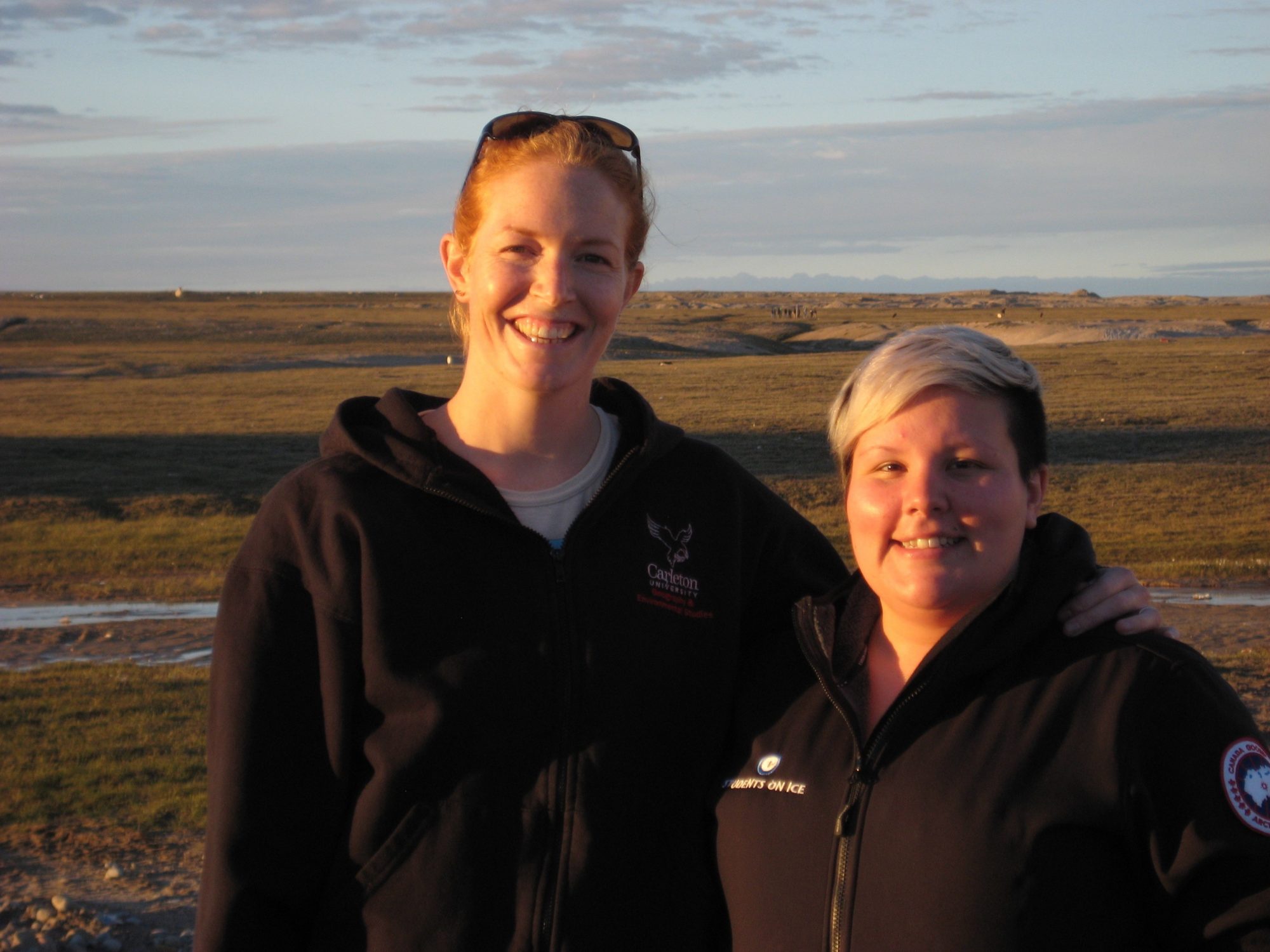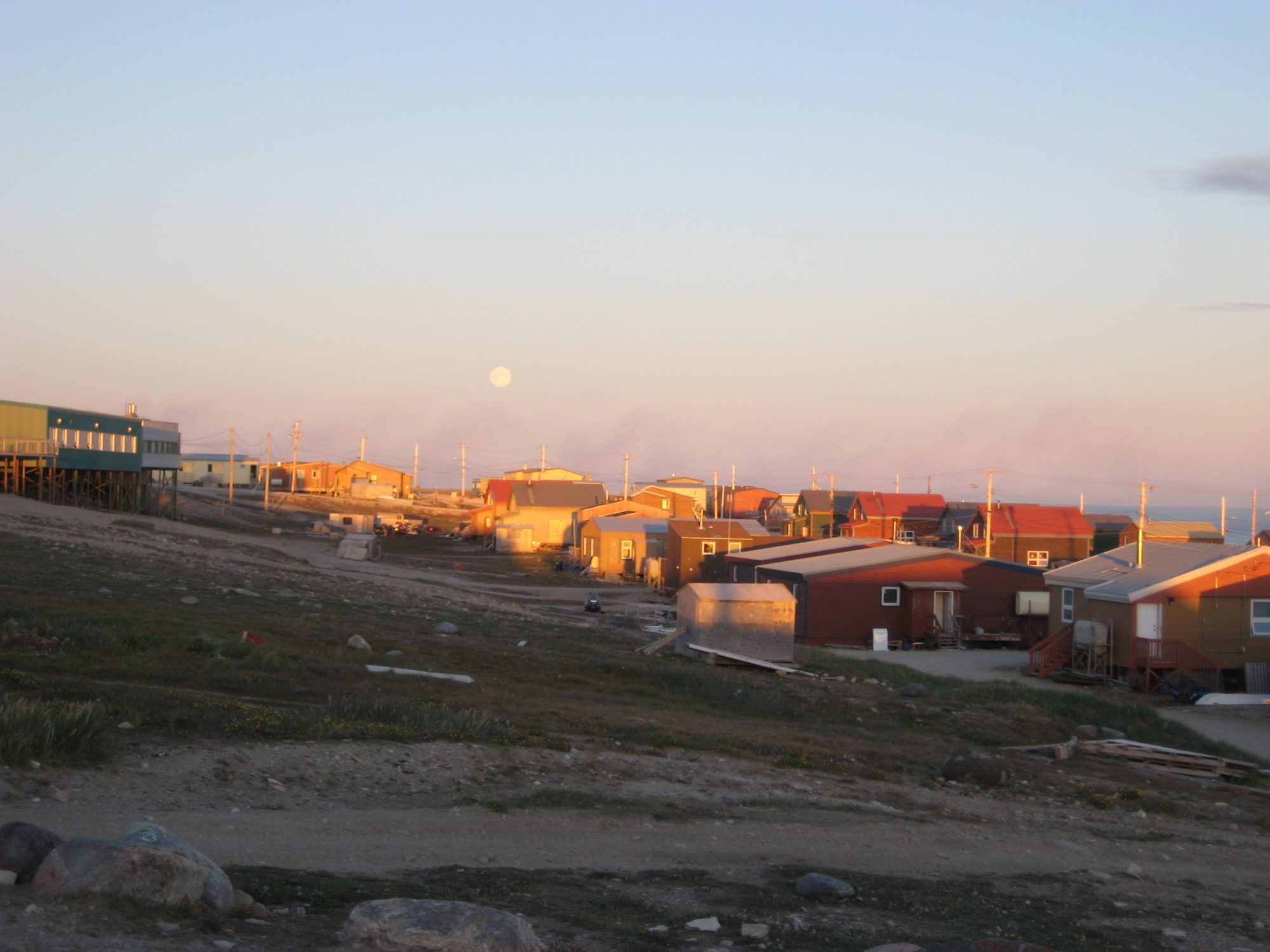Graduating Student Explores the Connections Between the Land and Knowledge Transfer
The Inuit have a long and vibrant history of storytelling.
Carleton graduate student Rebecca Mearns, who is originally from Pangnirtung, NU and now living in Iqaluit, NU, concurs: “Sharing stories in Inuit culture has been the foundation of knowledge transfer for generations.”

Mearns decided to focus her master’s thesis on how knowledge is transferred from Inuit elders to youths by attending two land camps just outside Gjoa Haven, a small community of about 1,100 people located 250 kilometres above the Arctic Circle in central Nunavut.
She wanted to explore how nuna (land) connects people with iliqqusiq (culture), uqausiq (language), and unipkaat (living histories).
“I got to spend time out camping with elders and youth learning about living on the land, Inuit hunting practices, language and other skills,” explains Mearns. “The Elders shared many stories of growing up on the land, at a time before they had the conveniences that we have now living in towns. Their stories ranged from everyday life growing up and living on the land, moving into Gjoa Haven, but also included many stories of myths and legends that had been passed on through generations.”

Her research found that land camps are a place for knowledge renewal that builds and strengthens the connections between generations, and a place for communities and researchers to connect.
Says Mearns: “Learning on the land provides a place for strengthening inuuqatigiittiarniq (relationships), inuusiqaqttiarniq (living a good life) and allows the youth to experience how the land provides niqiqainnarniq (sustenance). Storytelling connects us with others and by listening carefully there are many lessons that can guide youth in living a good life.”
She adds: “Storytelling demonstrates how the individual is part of the collective and, through working together, you can provide both learning practical skills to provide food at the camp (hunting, fishing, preparing meat, etc) and values that are embedded in the skills and stories shared. Working with the Elders meant that the youth were immersed in the language, through stories or camp activities.”
Mearns will be graduating in November.
She will continue to work at the Qikiqtani Inuit Association (QIA), where she has been working as the Inuit Impact Benefit Agreement Manager for the past two years while completing her thesis on a part time basis.
She says she is very thankful for the support she has received from her supervisor Gita Ljubicic throughout the process of completing her MA degree in Geography.